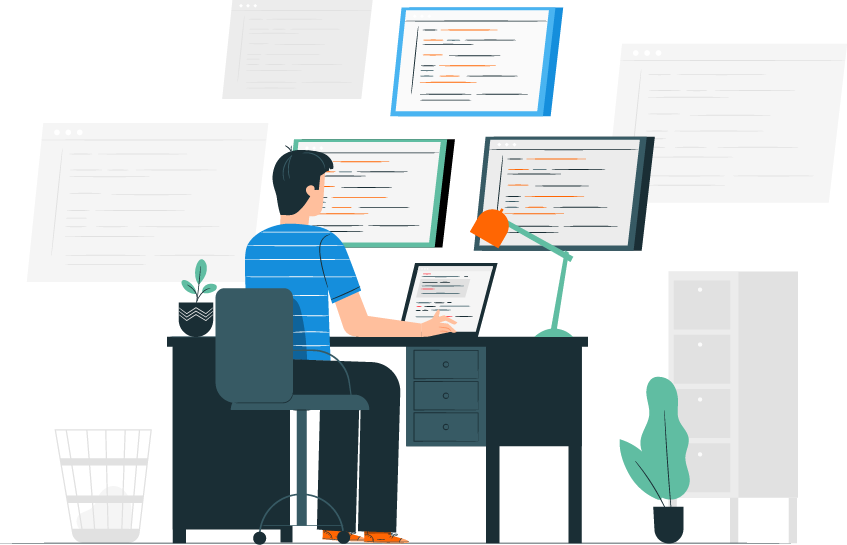ELearning Terms You Should Know
The world of instructional design and, more specifically e-learning, has its own vernacular and terminology along with a wealth of acronyms, which can be daunting at first to a newbie. If you are relatively new to this arena or find yourself overwhelmed by the jargon, here is a list of popular terms used in the industry that can help.

Section 508
The section of the 1998 Rehabilitation Act which states that all electronic and information technology procured, used, or developed by the federal government after June 25, 2001, must be accessible to people with disabilities.
Kirkpatrick Levels
A model used to ascertain a training’s learning effectiveness, behavior change influence, and impact on the business using four levels of measurement: reaction, learning, behavior, and results.
SCORM (Shareable Content Object Reference Model)
SCORM (Shareable Content Object Reference Model) is a set of technical standards enabling the communication between a course and an LMS. and is used to report whether the online learning activity was completed, and if so, successfully. It was developed and governed by ADL (Advanced Distributed Learning), originally for DoD. There are two flavors: SCORM 1.2 and SCORM 2004, with one of the main differences being the former has one status variable while the latter has two and can report more granular data such as the learner’s choice of a multiple-choice question.
SCO (Shareable Content Object)
A SCO is the least granular unit of trackable eLearning content in a SCORM package, and a Multi-SCO course can have more than one SCO within the package.
Manifest File
The XML file (always named imsmanifest.xml and stored at the root level of the package) that represents the information needed to describe to the LMS the contents of the SCORM package and the structure of the bundled learning resources within it.
LTI (Learning Tools Interoperability)
A standard of cross-system operability created by the IMS Global Learning Consortium used to connect learning systems with external tools in a standardized manner.
xAPI (Tin Can)
The Experience API is a learning technology specification that enables the collection of data of a person’s vast array of experiences whether online or offline utilizing a simple grammatical framework of Subject > Verb > Object such as Mark Attended Oracle World.
LRS (Learning Record Store)
A server used to receive, store, and access learning records as xAPI statements from other systems thereby enabling the tracking of many types of experiences and learning analytics.
AICC (Aviation Industry Computer-Based Training Committee)
A standard developed for CMI (Computer Managed Instruction) to communicate between both training content and assessments and the LMS.
Authoring Tool
The software used to create an eLearning course (usually without requiring any programming knowledge). It can enable the creation of interactive content, course navigation, assessment questions, grading, and the publishing of the course to make it ready for the LMS.
VILT (Virtual Instructor-Led Training)
Web-based training usually using web conferencing solutions for reaching widely dispersed learners with the instructor in a different location.
LMS
A software application for the storage, administration, tracking, reporting, and delivery of online training and, typically, the scheduling of instructor-led classes.
LCMS
A software solution used by content authors and instructional designers to create and manage learning content at its most granular level, thereby facilitating re-use.
Branching
Routes the learner to a specific area of content within the learning activity based on the outcome of a survey or assessment (see Adaptive Learning).
Synchronous Learning
Live training delivered by an instructor in real-time, typically in a live classroom or via web conferencing (see VILT).
Asynchronous Learning (Self-paced)
Learning in which the interaction between instructors and learners is intermittent. This includes eLearning and online discussion groups.
Blended Learning
A combination of both online and in-person modalities for learning activities.
Adaptive Learning
The customized delivery of specific learning content based on the unique needs of each learner by providing immediate feedback, differentiated pathways, and resources.
Microlearning
Microlearning is relatively small learning assets comprising just enough information for a learner to be able to achieve a specific, actionable learning objective, making it useful for rapidly closing specific skill and knowledge gaps.
Badging
An acknowledgment of the completion or mastery of a topic in the form of a digital token containing data including the date completed and institution granted. Badges are owned by the learner and capable of being shared across the web.
Learning Analytics
The collection, measurement, analysis, and reporting of data accumulated during an online learning activity allowing for deep insight into the behaviors, competencies, and experiences of its learners.
